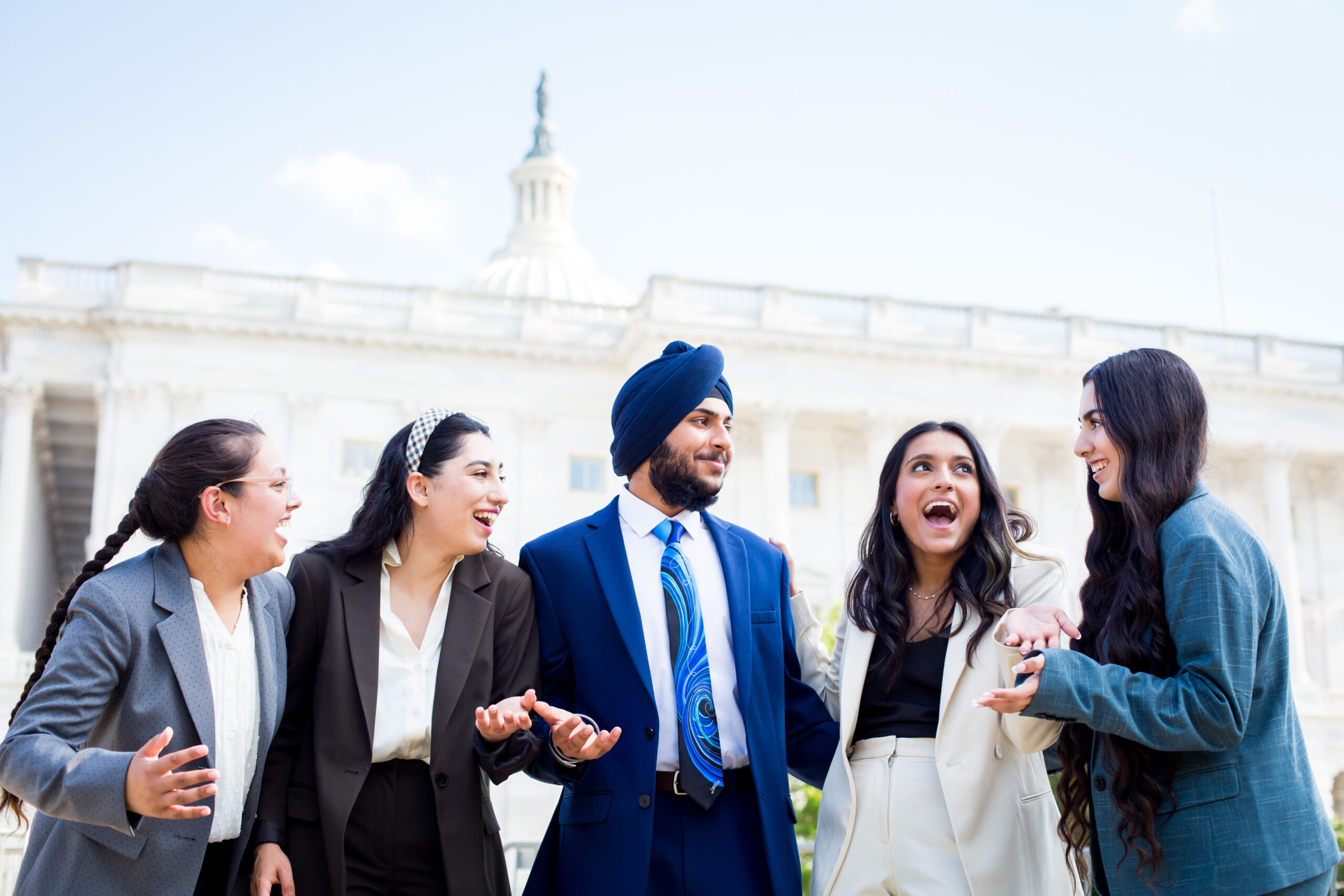Faith-based organizations are facing unprecedented hardship as a result of the ongoing COVID-19 pandemic. Houses of worship, including many Sikh gurdwaras, had to suspend, end, or modify religious services to accommodate public health mandates. At the same time, many individuals around the world are adapting to living in an increasingly digital post-pandemic world.
From at-home religious services to on-the-go video calls and for everything in between, broadband internet serves as the foundation for the innovations that power our lives. Unquestionably, going digital presented new challenges for SALDEF to accomplish our mission of connecting Sikh communities, protecting religious liberty, and growing Sikh civic and political participation.
Yet, despite these challenges, going digital also presented new opportunities for broadband internet to support our goals of connecting, protecting, and projecting a vibrant Sikh community in the United States and around the globe.
First, broadband internet helped connect and support a geographically diverse Sikh community during the COVID-19 pandemic. As the world’s fifth-largest religion with over 25 million followers globally, including over 700,000 in the United States, curating a diverse dialogue across the broader Sikh community is critical. Whether that dialogue came in the form of a video chat with a friend abroad or an over-the-internet international phone call to check in on loved ones, access to broadband internet made that connection possible.
It also goes without saying that resilient broadband networks supported many life-or-death efforts during the COVID-19 pandemic, both at home and abroad. In India, vaccine registrations for individuals aged 18 to 44 were available only online, making internet connectivity a lifeline for some and an obstacle for others.
Second, broadband internet access helps protect religious liberty in the face of ever-growing hate crimes taking place in both the physical and digital world. The Sikh and broader South Asian communities are no stranger to hate crimes, and we continue to face serious challenges to being respected and recognized as a vibrant and integral part of the fabric of this nation.
For example, just over a decade ago, a mass shooting in Oak Creek, Wisconsin claimed the lives of seven members of the Sikh community. Although traditional media covered the tragedy, news reports were largely inadequate and insufficient, often incorrectly conflating Sikhs with Muslims and quickly bumping the story from headlines. As a result, some younger Sikh Americans turned to social media platforms powered by broadband internet to correct the record and tell their stories.
Lastly, Sikhs at home and abroad are experiencing firsthand how essential broadband internet connection is to encourage a dynamic, politically active Sikh community. In 2020, Facebook acknowledged that they had silenced the international Sikh community by blocking the use of the hashtag #Sikh on its platforms. Just recently, the Indian government shut down the internet and blocked the social media accounts of journalists in response to peaceful protests against new agricultural laws.
These recent examples highlight the importance of getting more members of the Sikh community connected to broadband so the internet so that Sikh civic and political participation can thrive online and offline. Fortunately, U.S. policymakers have taken steps to increase broadband connectivity by, for example, offering eligible households’ broadband subsidies through the Emergency Broadband Benefit program. While this is an important first step, policymakers must now take action to ensure that the benefits of connectivity are available to communities for the long term by prioritizing the creation of permanent and fully funded federal broadband programs.
Although going digital has brought challenges, going digital has also brought new opportunities for faith-based organizations to flourish beyond just at-home religious services. New opportunities for broadband internet to connect members of the Sikh community across borders, protect against growing hate crimes, and project the image of strong, socially active Sikh community at home and abroad.
